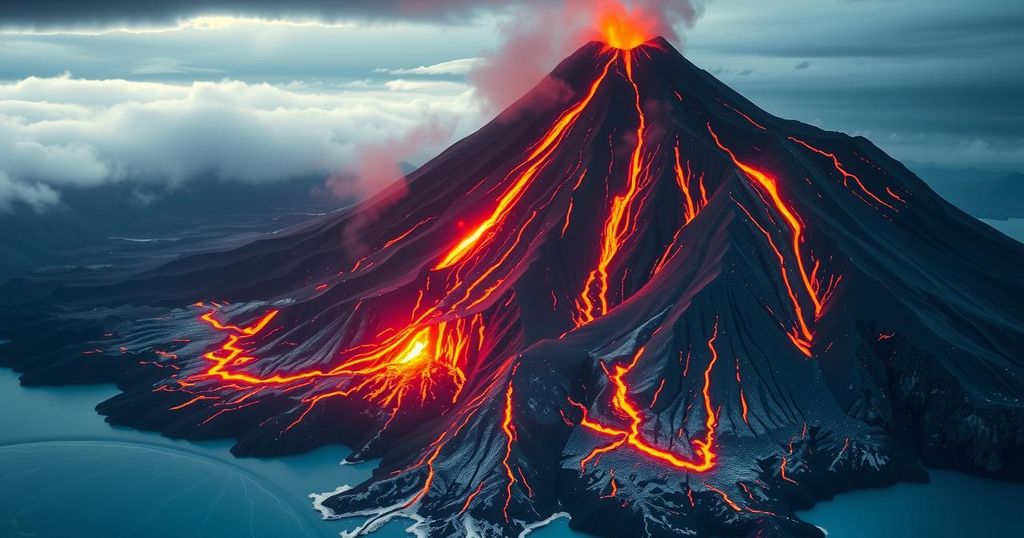Scientists are warning of an impending massive volcanic eruption that could have catastrophic effects on the climate and human life. Drawing on the lessons of Mount Tambora’s eruption in 1815, experts project that the combination of a warmer planet and increased population density near active volcanoes will exacerbate the impacts of such an event. Current geological analysis suggests a 1-in-6 chance of a significant eruption this century, leading to widespread cooling and agricultural disruption.
The next impending volcanic eruption poses a significant threat, one that the current global environment is not adequately prepared to handle. Mount Tambora, which erupted in 1815, serves as a historical benchmark for the potential devastation a massive volcanic explosion can inflict on climate and human life. The eruption released vast quantities of sulfur dioxide into the atmosphere, leading to global cooling and disastrous impacts on agriculture and human health, culminating in widespread famine and disease. As scientists foresee a 1-in-6 chance of a similar eruption occurring this century, the implications for a world already grappling with climate change could be catastrophic.
Modern advancements allow for detailed monitoring of volcanic activity and its potential impacts. Current geological research suggests that a large eruption in today’s climate, characterized by elevated global temperatures and significant population density near active volcanoes, could generate even more severe disruptions. Such eruptions may produce ash and gases that will not only cool the atmosphere but also alter rainfall patterns, consequently affecting food security around the world. With approximately 800 million individuals living within range of active volcanoes, including densely populated areas such as Naples, Italy, the potential for disaster looms large.
Historically, massive eruptions have contributed to substantial climatic shifts; for instance, volcanic activity has been linked to the onset of colder periods such as the Little Ice Age. Current projections indicate that the cooling effects of a new supereruption could fall disproportionately upon vulnerable crops, extending from the US to global breadbasket regions such as China and Russia, leading to political and social instability. Moreover, estimates of economic losses from such an event may reach upwards of $3.6 trillion, demonstrating the far-reaching effects deemed probable by insurers and climate scientists alike.
Understanding the historical context of volcanic eruptions provides insight into the potential ramifications of a future event. The eruption of Mount Tambora in 1815 exemplified how a volcanic event can dramatically alter climate and lead to significant consequences for humanity, including agricultural failure and increased mortality rates. Scientists now recognize the dual role of volcanoes in shaping the Earth’s atmosphere and climate, as they can release cooling aerosols while also contributing greenhouse gases, albeit in much smaller quantities than human activities. As the planet experiences climate shifts, the implications of a new volcanic eruption must be examined through both geological and contemporary lenses, considering how existing conditions could exacerbate the impacts of such an event.
In conclusion, the possibility of another massive volcanic eruption casts a shadow over global preparedness in the face of an evolving climate crisis. As scientists warn of a significant risk of such an event occurring within this century, the need for strategic planning and risk assessment becomes increasingly urgent. Without appropriate measures in place to mitigate impacts, humanity risks facing devastating consequences reminiscent of those experienced in the aftermath of Tambora. Given the interconnectedness of modern society and the potential for widespread disruption, proactive approaches are essential to safeguard populations against the chaotic climatic and economic ramifications that an eruption could unleash.
Original Source: edition.cnn.com






